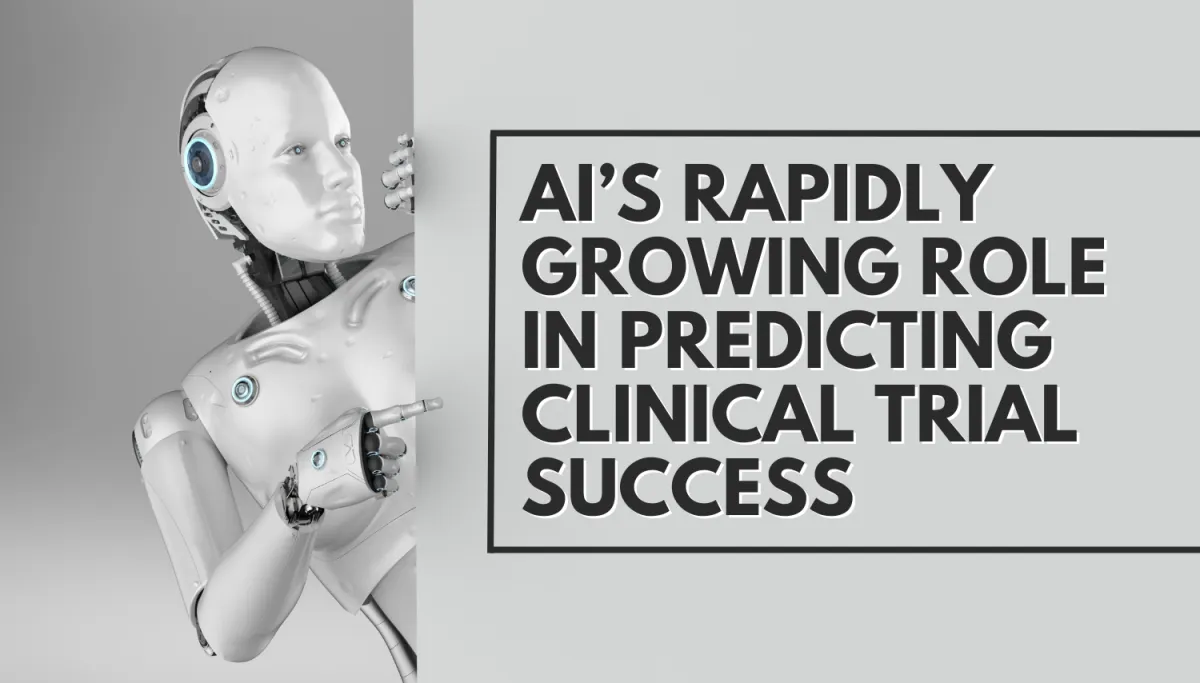NEWS

AI’s Rapidly Growing Role in Predicting Clinical Trial Success
The pharmaceutical industry is undergoing a transformative shift with the integration of artificial intelligence (AI) into clinical trial processes. As drug development becomes increasingly complex and costly, AI offers a promising avenue to enhance efficiency, accuracy, and success rates in clinical trials. This article explores the pivotal role of AI in predicting clinical trial outcomes, highlighting the emerging solutions and the transformative impact of these technologies on the future of medicine.
The Challenges in Traditional Clinical Trials
Clinical trials are essential for evaluating the safety and efficacy of new medical interventions. However, traditional trial designs often face significant challenges:
High Failure Rates: A substantial proportion of clinical trials fail to meet their primary endpoints, leading to wasted resources and delayed patient access to therapies.
Escalating Costs: The financial burden of conducting trials has increased, with estimates suggesting that bringing a new drug to market can cost upwards of $2.6 billion.
Time-Consuming Processes: The duration from initial research to regulatory approval can span over a decade, hindering timely delivery of treatments.
These challenges underscore the need for innovative approaches to optimize trial design and execution.
AI's Emergence in Clinical Trial Prediction
AI has emerged as a transformative tool in addressing the inefficiencies of traditional clinical trials. By leveraging vast datasets and advanced algorithms, AI can:
Predict Trial Outcomes: Analyze historical trial data to forecast the likelihood of success for new studies.
Optimize Trial Design: Identify optimal patient populations, endpoints, and methodologies to enhance trial efficacy.
Reduce Costs and Timelines: Streamline processes to minimize expenses and accelerate the development pipeline.
These capabilities position AI as a critical asset in modernizing clinical research.
Innovative Approaches to AI-Driven Predictions
Some of the most advanced AI platforms in development today utilize proprietary models trained on hundreds of thousands of past clinical trials. These systems evaluate a wide array of variables, including trial design elements, patient demographics, therapeutic indications, and previous regulatory outcomes.
Key Features of Predictive AI Models:
Comprehensive Data Analysis: Evaluate and interpret multiple inputs simultaneously, including structured and unstructured trial data.
Simulation Capabilities: Allow researchers to model different trial scenarios to compare potential outcomes and refine study design before implementation.
Strategic Decision Support: Provide actionable insights to inform funding allocation, prioritization of assets in the development pipeline, and go/no-go decisions.
By integrating these features, AI systems empower sponsors and researchers to make data-driven decisions that increase the likelihood of trial success.
Real-World Applications and Benefits
The implementation of AI-driven tools in clinical trial prediction has demonstrated measurable benefits across the sector:
Improved Success Rates: More targeted and adaptive trial designs lead to a higher probability of achieving primary and secondary endpoints.
Cost Efficiency: Intelligent trial planning reduces redundancy and unnecessary expenditures associated with poor design or underpowered studies.
Accelerated Timelines: AI reduces the trial-and-error nature of trial planning, shortening the time from design to regulatory submission.
Informed Investment Strategies: Improved predictability allows stakeholders to invest with greater confidence and lower risk.
These outcomes not only benefit pharmaceutical and medical device developers but also expedite the availability of innovative therapies for patients in need.
Ethical and Regulatory Considerations
While the benefits of AI are evident, its use in clinical research also raises several ethical and regulatory considerations:
Data Privacy: AI systems must protect sensitive patient data and ensure compliance with applicable privacy laws and guidelines, including those enforced by the Therapeutic Goods Administration (TGA) in Australia.
Model Transparency: Developers and users must understand how AI models arrive at their predictions. Explainable AI is critical for trust and accountability.
Regulatory Alignment: AI technologies in clinical development must align with global and regional regulatory frameworks. The validation of AI-generated predictions may require new regulatory pathways and industry consensus.
Addressing these considerations is essential for the responsible deployment and acceptance of AI in clinical trials.
Future Perspectives
The future of AI in clinical trials promises further breakthroughs that could reshape how new medicines and devices are developed:
Personalized Trial Design: With the increasing use of genomics and biomarkers, AI will play a key role in designing trials tailored to specific patient subgroups, making precision medicine more accessible.
Adaptive Learning Models: AI systems will continuously evolve by incorporating real-world data and ongoing trial outcomes, leading to more dynamic and responsive clinical research ecosystems.
Enhanced Collaboration: AI tools may facilitate greater collaboration across industry and academia by providing shared platforms for hypothesis testing and study simulation.
Integration with Digital Health: Wearable health tech and real-time patient monitoring tools will feed directly into AI systems, further improving patient selection, adherence monitoring, and endpoint evaluation.
By continuing to evolve and integrate with complementary technologies, AI will deepen its impact across all stages of drug and device development.
Schedule a Call with Us to learn more
AI's integration into clinical trial prediction represents a fundamental shift in how the pharmaceutical and medical device industries approach research and development. Advanced predictive systems can dramatically improve success rates, optimize trial design, reduce development costs, and bring innovative therapies to market more efficiently.
While challenges remain—particularly in the realms of ethics, regulation, and transparency—the momentum toward AI adoption is clear and accelerating. The future of clinical trials will be increasingly data-driven, predictive, and adaptive, supported by AI technologies that align scientific insight with technological innovation. For stakeholders committed to future-proofing medicine, embracing AI-driven trial prediction is no longer optional—it is imperative.
